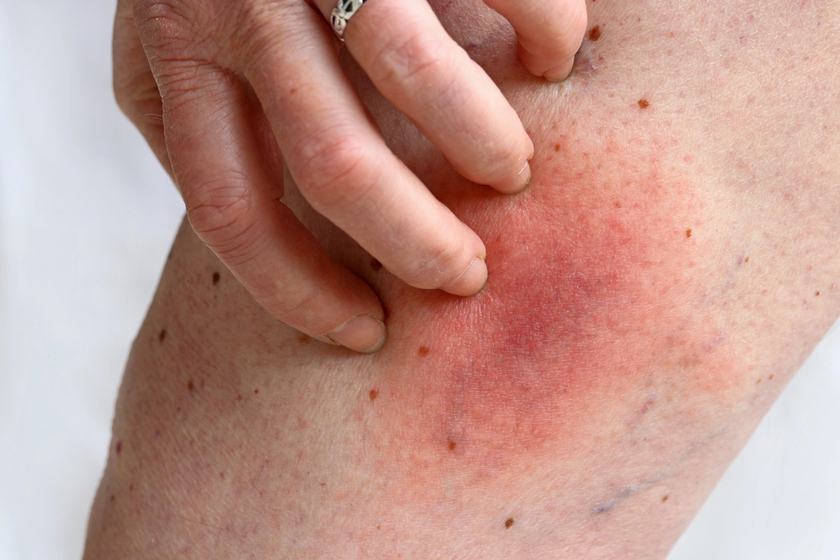When you or your loved one enters your golden years and retirement life, you may notice changes in your skin that lead to irritation and discomfort. Itchy skin in seniors is a prevalent concern that can be caused by various factors. Grasping the underlying causes and adopting proper skin care practices can help alleviate this discomfort and improve your quality of life. Learn more below.
Age-Related Skin Changes
As you age, your skin undergoes significant transformations, becoming drier, thinner and more susceptible to irritation. These changes can contribute to the development of itchy skin. The natural aging process leads to a decrease in oil production and moisture retention, resulting in dryness and itchiness.
Underlying Health Conditions
In some cases, itchy skin in the elderly may be a symptom of underlying health conditions. Chronic diseases such as diabetes, kidney disease and liver disorders can manifest as skin itchiness. Additionally, certain medications commonly prescribed to the elderly may have side effects that include skin irritation.
Environmental Factors
External factors such as harsh weather conditions and exposure to allergens can exacerbate itchy skin in the elderly. Dry indoor air, particularly during the winter months, can strip the skin of its natural moisture, leading to increased itchiness and discomfort. Furthermore, allergens present in the environment can trigger allergic reactions, resulting in skin irritation.
Managing Itchiness in the Elderly
While dealing with itchy skin can be challenging, several strategies can help alleviate discomfort and improve skin health.
- Hydrate Your Skin
Moisturizing regularly is vital for dealing with itchy skin. Opt for gentle, fragrance-free moisturizers that contain hydrating ingredients such as glycerin and hyaluronic acid. Apply moisturizer generously after bathing to lock in the moisture and prevent dryness.
- Bathe with Gentleness
When you take a shower, use lukewarm water rather than steaming hot water. This is because steaming hot water will strip away the natural oils on your skin and exacerbate itchiness. Choose mild, fragrance-free cleansers and avoid harsh scrubbing, which can further irritate the skin. Pat down your skin gently until it’s dry after bathing and apply moisturizer immediately to seal in moisture.
- Protect Your Skin
Protecting your skin from environmental aggressors is crucial for managing itchy skin. Wear protective clothing, including long sleeves and wide-brimmed hats, to shield your skin from the sun’s harmful rays. Use a humidifier in your home to maintain optimal indoor humidity levels and prevent dryness.
- Seek Medical Advice
If itchy skin persists despite home remedies, consult a healthcare professional for further evaluation and treatment. A dermatologist can assess your skin condition and recommend appropriate skin care products or medications to alleviate discomfort. They can also identify any underlying health issues contributing to your symptoms and suggest tailored treatment options.
- Lifestyle Modifications
Incorporating healthy lifestyle habits can also help manage itchy skin. Drink lots of water throughout your day to keep yourself hydrated, as adequate hydration is vital for maintaining skin health. Follow a balanced diet rich in vitamins and antioxidants to support overall skin function and repair.
Managing Itchy Skin After 60
Dealing with itchy skin can be bothersome, but grasping the underlying causes and implementing effective management strategies can significantly improve your skin health and overall well-being.
By prioritizing hydration, practicing proper skincare techniques and seeking medical advice when needed, you can alleviate discomfort and enjoy healthier, more comfortable skin in your golden years.







